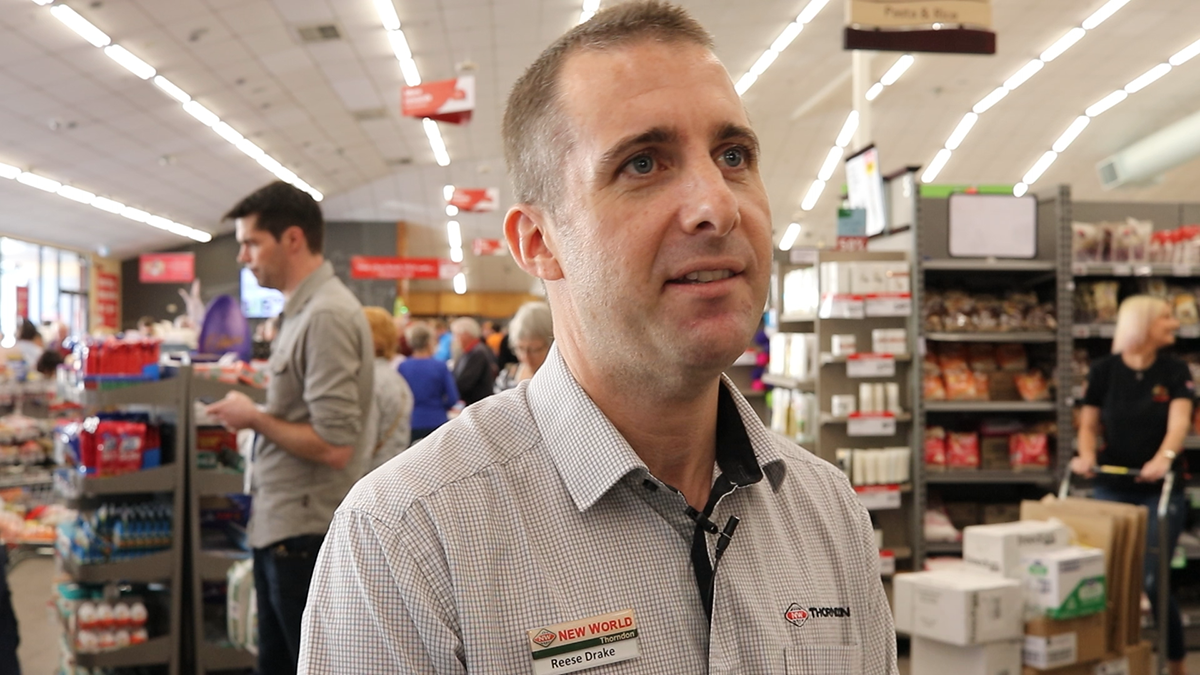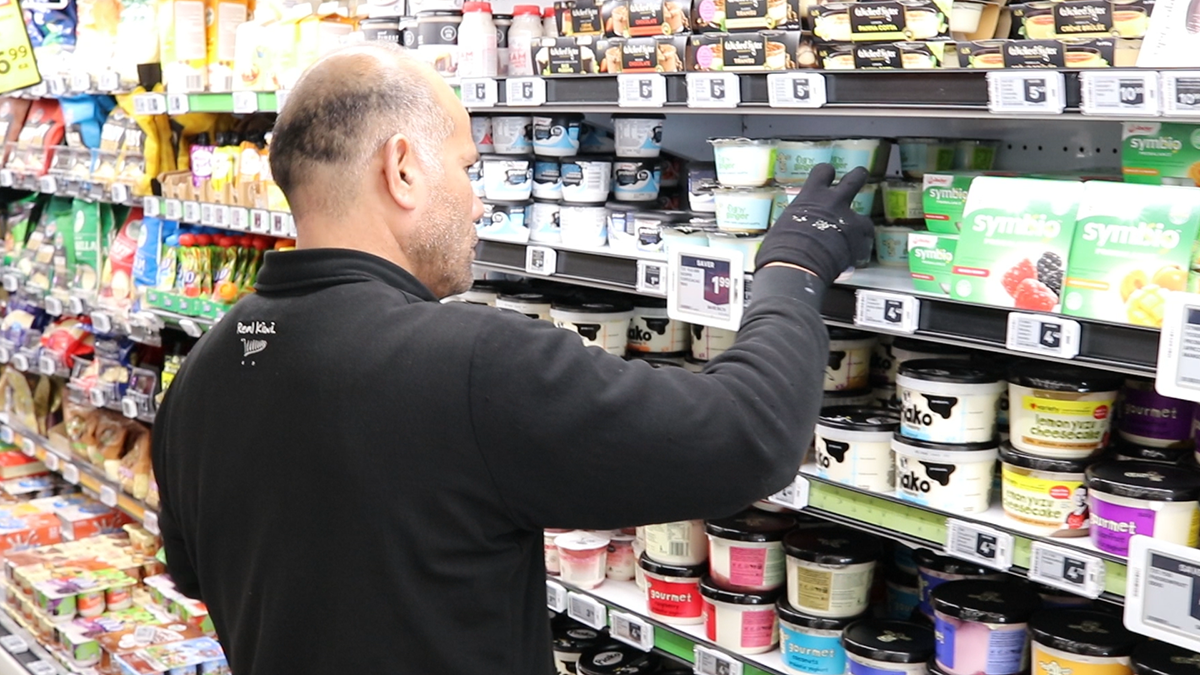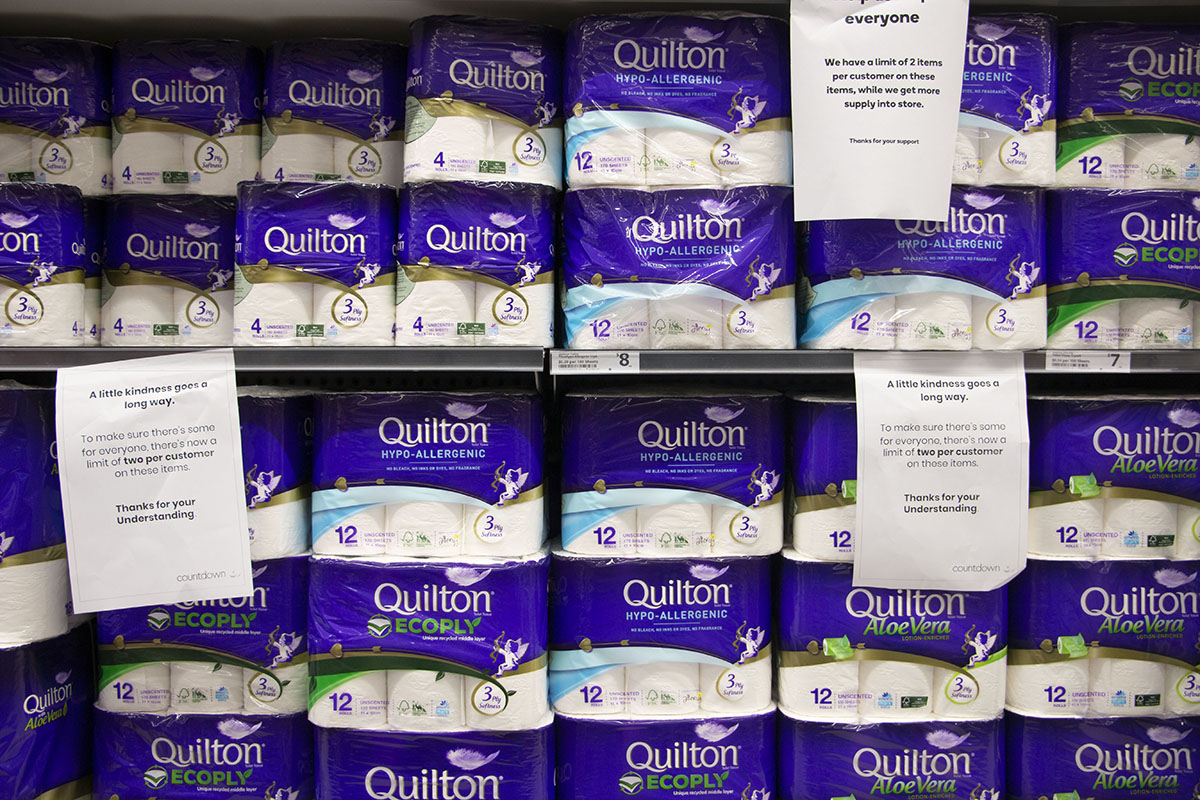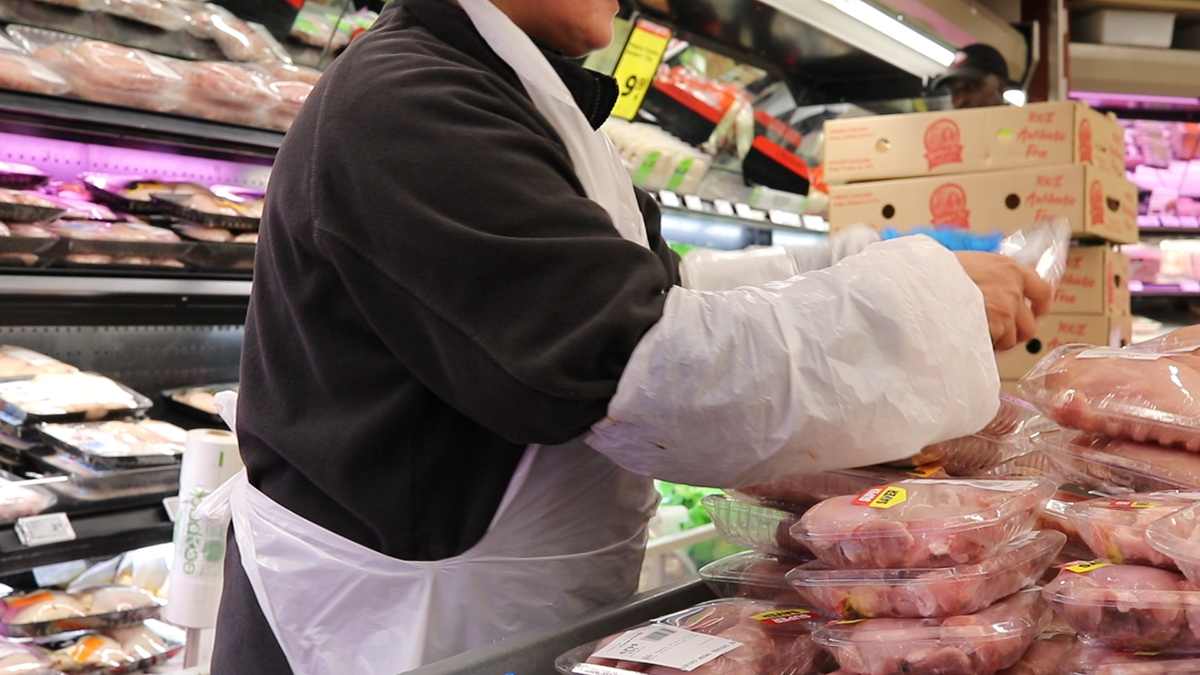It can be hard not to over-buy at the supermarket at the moment. Lines to get in the door can be half an hour long, and seeing empty shelves can make us panic. Here’s five tips on how to shop normally at this very abnormal time.
On the eve of announcing our country's new alert system to combat Covid-19, Prime Minister Jacinda Ardern reassured us we will not run out of food. “Our shelves will be stocked. There is no reason to panic buy. Have a plan and prepare. But do so knowing that our supermarkets will continue to have food on their shelves, if you give them the time to restock them.”
But the message hasn’t necessarily been getting through, and images of low or empty shelves are still being circulated. Bare shelves don’t mean we are running low on stocks - it’s because people’s shopping habits have changed so much that the supermarkets cannot keep up with restocking.
Reese Drake, owner of New World Thorndon in Wellington, says it’s a self-perpetuating cycle. One person buys more of a product than they need, and so other people see the diminished stock and think it must be running low and so they too buy more than they need. But “if people just took a little bit each time they came, we would actually see consistent stock on the shelf, and it would look basically no different than normal.”

Reese Drake, owner of New World Thorndon in Wellington
With that in mind, here are the five tips Reese has for shopping normally.
Tip 1: Be Prepared
Under lockdown supermarkets have implemented a limit to the number of people in the store at one time. This allows everyone to keep two meters distance from each other.
But this system makes it difficult to meander through the store like we normally do - backtracking in order to pick up the things we’ve missed or forgotten about.
It’s important to go to the supermarket as prepared as possible. Make a list of everything you need, and take some time to order roughly in a way that follows the layout of the supermarket - fruit and veg first, breakfast items next, canned goods after.
Reese says this will go a long way to keeping the supermarket moving. “The best thing for them to do is follow the plan - stick to what they need, and follow the plan of the store and that should work out well for everybody.”
Tip 2: Buy what you need
Having a list also makes this tip easier, allowing you to stay on track with purchasing just the things you need in the right quantity.
Avoid grabbing multiples of things you see are low. “What we're seeing is people taking, taking multiples and multiples of the same thing when really probably it’s not going to help them in the long run,” says Reese.
“The best thing to do is take a good variety of things. So you've got good cover across the board. And it just means there'll be plenty of stock on the shelf for when you come and when other people come. We're pretty confident that New Zealand can supply what we need.”
Tip 3: Be flexible
It’s probably not a good time to flag down a supermarket employee and ask if they have stocks of your favourite brand out the back, and it is certainly not the time to be squeezing all of the avocados looking for one that is just the right ripeness.
We all have preferences for shopping - your favourite brand of beans, or the ideal stage of ripeness for your bananas. But with the strains on supermarkets right now, it’s important we’re flexible with what product is available to us and how we buy it.

Reese points out that there are always plenty of alternatives, even if your brand of preference is out of stock. He also says that, where possible, it is helpful to lean into domestic brands that are supplied locally.
Some stores have implemented a two-item limit on key products. It’s wise to factor this into your shopping planning.
If you’re making chilli for your flat, and would normally get three cans of chilli beans, then you are going to have to be flexible with your approach, and get two cans of black beans, two kidney beans and two tinned tomatoes (or some variation). Keep this in mind in shopping planning, and work around it where possible.
Tip 4: Be kind
This one should be obvious… but be kind to everyone around you when shopping.
As Reese says, “appreciate the fact that everybody's in the same boat. We're all under pressure, we're all trying to achieve the same thing for everybody.”

It’s understandable if you’re feeling stressed out, and as one of the few essential reasons to be out of the house during lockdown it is likely you will be feeling some extra pressure. But with everyone around you feeling the same way it is important to try your best to have kindness be your first reaction.
It’s especially important towards supermarket employees - who right now are working unbelievably hard, and for very little pay considering they are on the frontline of this pandemic.
Unfortunately, this hasn’t always been the case so far. As these supermarket workers told Re:, physical fights have broken out in some stores, staff are facing verbal abuse and extra security has had to be put in.
Reese says a lot of kindness can be shown in how we shop. “I think it probably starts with just the sharing of the product itself. Be kind in the fact that just take what you need and that will help everybody. And then when you're in store you’ll have access to what you need.”
Tip 5: Be a good Kiwi
Finally, make sure you are being a good Kiwi and following the guidelines of the Government and supermarkets.
Make sure you are only going to the supermarket for essential shopping. One can of asparagus is not essential. Make sure you are going to the supermarket to stock up for one week, and then only returning when you need essential supplies.

Also, be considerate of the guidelines while in the store by maintaining the two metres from other shoppers as much as possible and not handling products unnecessarily.
“It's clearly super important that everybody follows the guidelines,” Reese says. “It allows us to keep doing our job, keep ourselves safe, and keep them safe, so we can deliver on our promises to the customer.”
“If everybody just does their little bit, it would really mean a lot to us and to our teams because everybody's under pressure, and eventually they're all going to get very, very tired.”